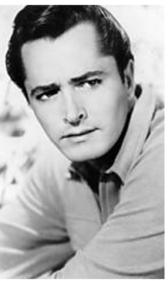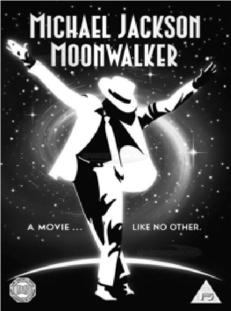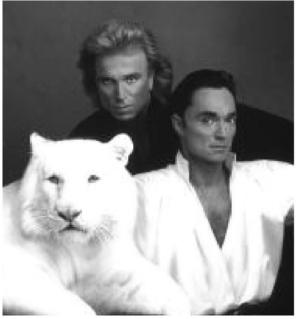Jacko, His Rise and Fall: The Social and Sexual History of Michael Jackson (56 page)
Read Jacko, His Rise and Fall: The Social and Sexual History of Michael Jackson Online
Authors: Darwin Porter

The Jackson family was uniformly negative about Moonwalk, especially
Michael's brother Marlon, who found three-fourths of the book "a lie." La
Toya also expressed her disappointment. "Cold and impersonal. What did he
leave out? The beginning. The middle. And the end."
At the same time Katherine was also shopping her version of life with the
Jacksons. She called it The Jackson: My Family, and sent a draft of her autobiography to Jackie at Doubleday. "All vanilla with no chocolate sauce,"
Jackie wrote to her publisher. The book was filled with such fairytale revelations as Michael telling his second-grade teacher, "Someday I'm going to live
in a castle."
In spite of her troubled, often violent marriage to Joe, she wrote,
"Occasionally when Joe and I are lying in bed at night, one of us will become
nostalgic: `Remember when...?' Before we know it, we're reliving one of the
countless special moments in our family's past: Our kids' living room sock
hops, The Jackson Five's public debut at a department store in Glen Park,
Illinois. Joe will never admit publicly that he can be just as sentimental as I,
so I just did it for him." She ends on an upbeat note,
visualizing herself "watching the grandkids perform as
professionals someday." Her book was eventually published by St. Martin's Paperbacks and released in 1990.

John Derek
Flying into Narita Airport in Japan on September 9,
1987, Michael was besieged by fans, as police struggled
valiantly to keep him from being mobbed. He was
angered when 300 photographers arrived to take pictures of Bubbles, who had flown into Tokyo on a separate flight. "Just who in the hell does this chimp think he
is?" Michael asked. "Once again forgetting who the real
star is. Me!" He also seemed resentful that Japanese Prime Minister Nakasone presented a ceremonial sword to Bubbles-and not
to Michael.
When he was installed in grandeur on the 10th floor of Tokyo's Capitol
Hotel, Michael was informed that the rooms would henceforth be known as
The Michael Jackson Suites.
After Michael launched a total of fourteen sold-out performances at
Korakuen Stadium in Yokohama, he was told that the Japanese had dubbed
him "Typhoon Michael." In less than a month, he played to nearly half a million fans at fourteen concerts in three Japanese cities. The world press, covering the Japan tour, seemed to go wacko over Jacko, Today proclaiming-"No
pets, no plastic just raw sex." News of the World, using a politically incorrect term, proclaimed "Japs Go Whacko (sic) over Raunchy Jacko."
On the Bad tour, journalist Paul Voth accurately summed up media reaction to Michael. "Even as he triumphed on his world tour, the papers at home
and abroad began an assault on Michael that would last for years. Speculation
about his nose, his skin, his sexuality-slowly but surely a trend developed.
The media concentrated less and less on Michael's musical contributions in
favor of the much more profitable stature of portraying him as a weirdo with
strange habits and ideas."
On September 14, Michael's manager, Frank DiLeo, informed the world
press, including ten journalists flown in from London, that stories that
Michael purposely lightens his skin "are preposterous."
In Australia, the press was not so kind. Michael was routinely labeled
"Wacko Jacko." One Aussie journalist proclaimed, "In a word, Michael
Jackson is a nut case."
Michael responded by writing a letter to People magazine that would have
gotten an eighth grader an F in English: "Do not judge a man until you've
walked 2 moons in his mocassins (sic). Most people don't know me, that is
why they write such things in wich (sic) most is not true. I cry very often
because it hurts and I wory (sic) about the children." The letter didn't turn the
tide against the lingering wisecracks about him. It did, however, prove to the
world that Michael couldn't spell.
Even late-night TV comedians began to suggest that there was "something
queer" going on between Michael and Bubbles. "The question is," one
raunchy comedian said in a Las Vegas night club, "Is Bubbles the top or the
bottom?"
Privately Michael didn't turn such a kind face to the world as suggested
by his child-like letter. Hearing of lagging ticket sales among the Aussies, he
threatened to fire his entire managerial staff, including DiLeo, if the Bad
album didn't top the sales of Thriller. Sales were so poor in Perth and
Adelaide that concerts were cancelled. Comments in the local bars, particular ly among cricket players, were nasty, some claiming they weren't going to pay
eighty dollars "to see some dancing nigger faggot. If we want to see dancing,
we've got our own aborigines."
Some of the press in Australia was more favorable, reporters labeling
Michael "Crocodile Jackson." But for what reason, as that was hardly his
image? British journalists wrote about "The Peter Pan of Pop." But some
London reporters were fascinated by the stories that kept popping up that
Michael was interested in young boys and that he preferred their company to
that of a beautiful young woman. Many of his female fans continued to make
themselves available to Michael, but he showed no interest. One journalist
wrote, "Instead of the Peter Pan of Pop, I'd call him The Pied Piper, luring
young boys to God knows what fate." Michael was furious when he heard that
and threatened to sue.
One Australian journalist noted, "Jacko is grabbing his crotch more frequently. He really should masturbate in his dressing room before `coming' on
stage. His disgusting performance isn't suitable for children. Actually he doesn't seem to show any crotch at all-rather a concave. Maybe those rumors are
true-that he had his pecker cut off."
"Now they're attacking my manhood," Michael lamented. "Who do these
jackals think they are, Madonna?"
In January of 1988, Michael turned up in Las Vegas, watching a performance of "Siegfried & Roy" at the Frontier. Meeting the performers backstage,
Michael was invited to spend the following day with them at their plush home
in the desert. "A gay time was had by all," wrote a cynical Las Vegas reporter.
Siegfried and Roy worked with Michael on creating illusions for his show.
To show his gratitude, he wrote their theme song, "The Might in the Magic."
A tape of Michael performing the song opened the duo's future shows.
Flying to Pensacola, Florida, for rehearsals for an all-new show, Michael
also brought his chef with him. It was reported that Michael existed for several days on a diet of fresh flowers.

He wanted to open the new show in Atlanta
but Pepsi, his sponsor, objected. "Not in the
home of Coca Cola," Michael was told by Pepsi
executives.
Instead, Michael and his troupe opened his
U.S. tour in Kansas City. It was reported that
backstage before he went on, Michael assembled
his troupe together to pray to God to "make us
funky!" To judge from the show itself, God
granted their request.
Right before leaving Kansas City, Michael was told that his Standing Room Only performances there had brought in
$750,000, topping the previous record set by Elvis Presley.
Michael danced a jig of joy. "Who's The King now?" he asked.
It was on to New York and Madison Square Garden. Michael was delighted when a Newsweek reviewer compared his Moonwalk as equivalent in fame
to Charlie Chaplin's wobble. The Little Tramp still remained his favorite performer.
Back in the Midwest, Michael landed in St. Louis. To the extreme disappointment of his fans, Michael almost immediately came down with the flu
and laryngitis. The culprit who exposed Michael to the infection was reportedly a thirteen-year-old boy introduced as "Peter." Somehow Michael had met
this handsome child in New York and had invited him, along with his parents,
to tour with them, even on future dates in Europe.
Michael had been seen with Peter so frequently that he touched off tabloid
speculation. One journalist even claimed that Michael "bought the kid by giving the parents a Rolls Royce." It was later revealed by Steve Chabre, former
head of MJJ Enterprises, that Michael did indeed purchase a Rolls for Peter's
parents, as well as a luxurious house in California's San Fernando Valley.
A former garbage collector, Peter's father was hired to go on the road with
the Bad troupe. As publicist Bob Jones noted, "On every stop of the tour,
Michael and Peter stayed locked in Michael's suite."
While Michael was occupied with Peter, Bob and Michael's chief of security, Bill Bray, had to keep the boy's parents distracted with shopping jaunts.
Michael placed no limit on the amount of purchases the parents could charge.
Recovering from "Peter's flu," Michael flew to his home state of Indiana
to appear at the Market Square Arena in Indianapolis on March 18, 1988.
Although publicly he remained smiling, Michael was overheard saying,
"Indiana is a great state . . ." He paused. "To leave."
With Peter by his side, Michael
speeded up his tour, playing in Denver,
Hartford, and Houston, where he invited
Vice President George Bush to attend. The
offer was spurned. Next on the tour was
Atlanta, where Pepsi, in a reversal of a previous decision, decided to take on the CocaCola giant on its home turf, slathering the
town with Pepsi advertising.

Siegfried and Roy
Arriving in Chicago, Michael
received the Key to the City from its mayor,
Eugene Sawyer.
The leader of the Nation of Islam, minister Louis Farrakhan had denounced Michael's "Victory" tour and had
urged a boycott because of Michael's "Jheri-curl, female acting-he's a bad
role model for our young boys." But in a grand gesture, Bob Jones invited
Farrakhan to a performance. At Michael's request, Eddie Murphy had already
given him tapes of Farrakhan's orations.
That night the controversial minister was won over, proclaiming Michael
"A Special Messenger of Entertainment." In subsequent speeches, Farrakhan
would praise Michael, who would later contribute $25,000 to Farrakhan's
"Million Man March" on Washington, DC, on October 16, 1995.
Bob Jones delivered the money in his own name, as Michael didn't want
his name used. "This is how Michael operated: Always willing to hang someone else out to dry and cover his own ass," Bob charged. "You see, if the
media and public found out that Michael Jackson donated anything to an event
sponsored by the Nation of Islam, he'd lose his Jewish friends and a lot of his
fan base would turn against him."
After playing in Dallas and Minneapolis, the troupe flew to Europe, landing at Rome's international airport on May 23, 1988. It was time for a reunion
with his new friend, Sophia Loren. He escorted her to a party thrown by
Franco Zeffirelli, the movie director, at his elegant Rome villa, but Michael
spent all the time playing with a gaggle of pajama-clad children and refusing
to mingle with tout Roma.
The U.S. Ambassador to Rome, Maxwell Rabb, personally escorted
Michael on a private visit to the Sistine Chapel. "Diana Ross taught me to love
art," he told the ambassador.
Frank DiLeo had tried to arrange for a private meeting between Pope John
Paul II and Michael, but the pontiff canceled at the last minute. Privately he
let it be known that, "I don't want to become part of the Michael Jackson publicity machine."
